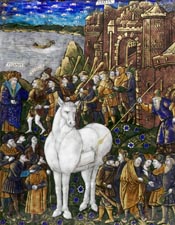Is the Aeneid a Trojan Horse?
, authored by Mattes, M. J. (contact-email)
This edition posits a subversive reading of Virgil’s Aeneid, suggesting that though ostensibly praising Emperor Augustus, it subtly critiques him. The elaborate description of the Trojan Horse is unnecessary for the epic’s narrative and raises the question of Virgil’s intent. It is argued that Virgil mirrors the Greeks’ subterfuge, ostensibly celebrating Augustus, while offering a veiled censure akin to the fatal deceit of the Horse. The parallel between Sinon, the Greek deceiver, and Virgil is noted, possibly alluding to Virgil’s teacher Siron, and indicating a clandestine stratagem. Virgil’s personal risk in this deceptive praise is likened to the peril faced by Greeks concealed within the Horse.
Further, Virgil’s portrayal of Odysseus invites scrutiny. While Trojans in the Aeneid scorn Odysseus for his cunning, Romans and Greeks often admired his intelligence. It is suggested that Virgil, himself intellectually astute, held Odysseus in high regard, in contrast to the straightforward Aeneas, inviting questions about Virgil’s true stance on cunning versus honesty.

Mattes, M. J.
Support Open-Access:
Your contribution keeps our classical translations available to all. Every dollar helps support classics education and funds the expansion of our catalogue. Value what we do? Donate now.
File Downloads:
© Copyright, All Rights Reserved. This work may be freely reproduced, stored and transmitted, electronically or otherwise, for any non-commercial purpose. Conditions and Exceptions apply.